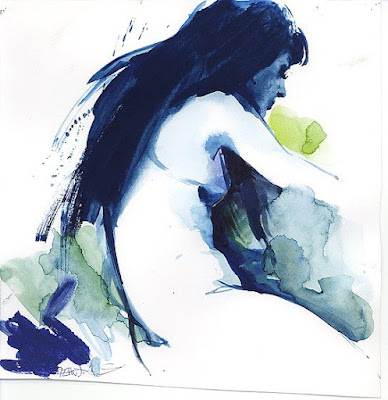Ναύπλιο, Ναός Αγίου Σπυρίδωνα
Όλες οι θεμελιακές ενέργειες του Καποδίστρια, που απέβλεπαν κυρίως στη βελτίωση του βιοτικού επιπέδου των πτωχών τάξεων, ήταν αναπόφευκτο να δημιουργήσουν έντονες και βίαιες αντιδράσεις εκείνων που θίγονταν άμεσα τα συμφέροντά τους. Επιπλέον, το γεγονός ότι εκ των πραγμάτων ήταν αδύνατη η ικανοποίηση σωρείας απαιτήσεων, άλλοτε λογικών και συνήθως υπερβολικών και παράλογων, είχε ως αποτέλεσμα την ένταση του αντιπολιτευτικού εναντίον του ρεύματος. Οι μεγάλοι γαιοκτήμονες, οι κοτζαμπάσηδες, πολλοί οπλαρχηγοί και οι μεγάλοι καραβοκυραίοι των ναυτικών νησιών πρωτοστατούσαν στις κινήσεις εναντίον του κυβερνήτη. Οι λαϊκές τάξεις, όσο κι αν λάτρευαν τον κυβερνήτη τους, δεν μπορούσαν να αποτελέσουν σοβαρό αντιπερισπασμό στην ολιγαρχία των ισχυρών, από τους οποίους μάλιστα εξαρτιόνταν, αφού είχαν μαζί τους σχέση εργοδότη και εργαζόμενου…
Η Ύδρα αποτελούσε το κέντρο της αντιπολίτευσης, με εγκέφαλο τον Αλέξανδρο Μαυροκορδάτο και στενούς συνεργάτες του τον Ανδρέα Μιαούλη και τον Λάζαρο Κουντουριώτη. Κύριος στόχος τους ήταν η ανατροπή του κυβερνήτη…
Έντονος αντιπολιτευτικός αναβρασμός επικρατούσε και στη Μάνη, με πρωτεργάτες μέλη της οικογένειας Μαυρομιχάλη. Ο Καποδίστριας γνώριζε ότι το θανάσιμο εναντίον του μίσος των Μαυρομιχαλαίων οφειλόταν στο γεγονός ότι είχε τολμήσει να καταργήσει τα τεράστια οικονομικά προνόμια στους δασμούς και τους φόρους, που είχαν αποκτήσει κατά την Τουρκοκρατία, και να τους αφαιρέσει την παράνομη κατοχή που είχαν κάνει στα τελωνεία της νότιας Μεσσηνίας. Τελικά, όταν η κυβέρνηση αναγκάστηκε να πάρει ορισμένα περιοριστικά μέτρα στις παράνομες κινήσεις τους, η αντίδραση των Μαυρομιχαλαίων κορυφώθηκε και υποκίνησαν στην έδρα τους, το Λιμένι της Μάνης, αιματηρή στάση …Στις 14 Ιουλίου 1831, με 200 ένοπλους Υδραίους ο Μιαούλης έφτασε στον Πόρο και κατέλαβε το μεγαλύτερο πλοίο του πολεμικού στόλου «Ελλάς» και το μικρό φρούριο του νησιού … Ο Μιαούλης προσπάθησε να πείσει τον Κανάρη να προσχωρήσει στους στασιαστές, εκείνος όμως αρνήθηκε και χαρακτήρισε την πράξη του Μιαούλη «ανταρσία»…
Ξημερώνοντας 1 Αυγούστου 1831 – και παρά τις αντιρρήσεις του Κριεζή – ο Μιαούλης διέταξε τους άνδρες του να τοποθετήσουν φυτίλια στην πυριτιδαποθήκη της φρεγάτας «Ελλάς» και στις κορβέττες «Ύδρα», «Εμμανουήλ» και «Καρτερία». Στις 9:30 το πρωί έδωσε διαταγή να πυροδοτηθούν τα φυτίλια. Το «Ύδρα» και το καμάρι του στόλου, «Ελλάς», καταστράφηκαν ολοσχερώς. Ο Κανάρης ανήγγειλε την ίδια ημέρα το συνταρακτικό γεγονός στον Καποδίστρια… Η κατάσταση έλαβε επικίνδυνες διαστάσεις με την ενεργό ανάμειξη της αγγλικής και γαλλικής διπλωματίας, που απροκάλυπτα υποστήριζαν την Ύδρα και τη Μάνη. Μανιάτες και Υδραίοι, με την ενεργό συμμετοχή του γαλλικού στρατού, κατέλαβαν την Καλαμάτα και έκαψαν τα κυβερνητικά πλοία πού βρίσκονταν στο λιμάνι της… Από τις αρχές Σεπτεμβρίου κυκλοφορούσαν έντονες φήμες για επικείμενη δολοφονία του κυβερνήτη, και το στενό του περιβάλλον τον παρότρυνε να πάρει προφυλακτικά μέτρα και να διατάξει παρακολούθηση των Μαυρομιχαλαίων. Ο Καποδίστριας αρνήθηκε κατηγορηματικά, λέγοντας ότι δεν θα έφταναν ως το έγκλημα, που θα έπληττε κυρίως την Ελλάδα. Οι Μαυρομιχαλαίοι, όμως, έχοντας την απροκάλυπτη υποστήριξη των αντιπρέσβεων της Αγγλίας και της Γαλλίας, είχαν πάρει την τραγική για την Ελλάδα απόφασή τους. Τα ξημερώματα της Κυριακής, 27 Σεπτεμβρίου 1831, όταν ο Καποδίστριας έφτασε στην είσοδο της εκκλησίας του Αγίου Σπυρίδωνα στο Ναύπλιο, οι εθνοκτόνες σφαίρες του Κωνσταντίνου και το μαχαίρι του Γεωργίου Μαυρομιχάλη σώριασαν νεκρό τον μεγάλο Ευρωπαίο διπλωμάτη και μοναδικό Έλληνα πολιτικό.

















